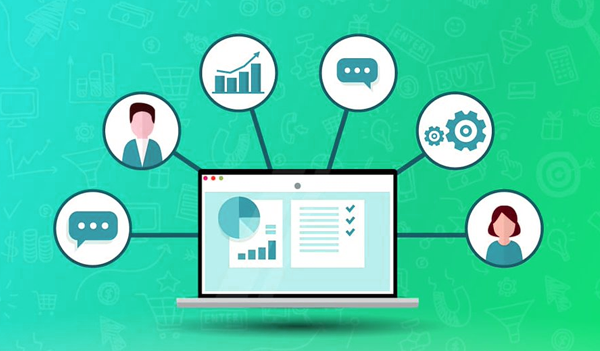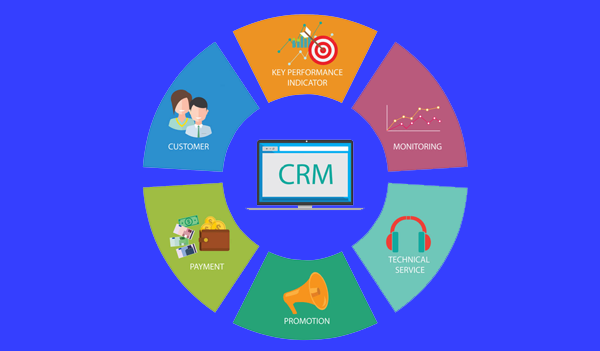In today’s competitive business landscape, customer relationship management (CRM) software has become essential for companies looking to streamline their sales processes, improve customer satisfaction, and maximize their return on investment (ROI).
With numerous CRM software solutions available in the market, it can be challenging to choose the right one for your business. In this article, we will explore 25 top CRM software solutions that can help you achieve maximum ROI.
Introduction to CRM Software
CRM software is a powerful tool that allows businesses to manage their interactions and relationships with customers. It provides a centralized database where companies can store customer information, track sales activities, and analyze data to make informed business decisions.
CRM software also enables seamless communication between different departments, facilitating collaboration and enhancing overall productivity.
Importance of CRM Software for Businesses
Implementing CRM software offers several benefits for businesses. Firstly, it allows companies to gain a comprehensive view of their customers by consolidating customer data from various touchpoints. This enables personalized and targeted marketing campaigns, leading to improved customer satisfaction and increased sales.
Secondly, CRM software helps automate and streamline sales processes, reducing manual effort and minimizing errors. Sales teams can track leads, manage pipelines, and monitor sales activities more effectively, resulting in higher conversion rates and faster deal closures.
Additionally, CRM software provides valuable insights through data analysis. By tracking customer interactions and purchase history, businesses can identify trends, forecast future sales, and make data-driven decisions. This helps optimize marketing strategies, enhance customer service, and identify opportunities for growth.
Factors to Consider When Choosing CRM Software
Before diving into the list of CRM software solutions, it’s crucial to consider several factors that will influence your decision-making process. These factors include:
- Business Needs: Assess your specific business requirements and determine which CRM features are essential for your organization.
- Scalability: Ensure that the CRM software can accommodate your business’s future growth and scalability.
- User-Friendliness: Look for a CRM solution that is intuitive and easy to use, as this will encourage user adoption and minimize training time.
- Integration Options: Check whether the CRM software integrates seamlessly with other tools and systems you currently use, such as email marketing platforms or customer support software.
- Customization: Determine if the CRM software can be customized to align with your unique business processes and workflows.
- Data Security: Evaluate the security measures implemented by the CRM software provider to protect your sensitive customer data.
- Customer Support: Consider the level of customer support provided by the CRM software vendor, including availability, response time, and support channels.
Top CRM Software Solutions for Maximum ROI

Now let’s explore 25 top CRM software solutions that can help businesses achieve maximum ROI. Each of these solutions offers unique features and benefits, catering to different business needs.
- Salesforce: A highly customizable CRM platform known for its robust features and extensive integration options.
- HubSpot CRM: A user-friendly CRM software with a free version available, ideal for small businesses and startups.
- Zoho CRM: Offers a comprehensive suite of CRM tools suitable for businesses of all sizes, including sales, marketing, and customer support.
- Microsoft Dynamics 365 CRM: Provides a scalable CRM solution with strong integration capabilities within the Microsoft ecosystem.
- Pipedrive: Focuses on visual sales pipeline management, making it easy for sales teams to track and close deals.
- Freshworks CRM: Offers a unified platform for sales, marketing, and customer support, with automation features and AI-powered insights.
- Insightly: A CRM software that emphasizes project management and is suitable for businesses with complex sales cycles.
- Agile CRM: Combines CRM, marketing automation, and customer support features into a single platform, ideal for small and mid-sized businesses.
- Copper CRM: Designed for Google Workspace users, it integrates seamlessly with Gmail, Google Calendar, and Google Drive.
- Zendesk Sell: A sales-focused CRM solution that provides powerful analytics and reporting capabilities.
- Nimble: Offers social CRM features and integrates with various social media platforms to enhance customer engagement.
- Bitrix24 CRM: Provides a wide range of CRM tools, including project management, collaboration, and communication features.
- SugarCRM: Offers both cloud-based and on-premises CRM solutions with advanced customization options.
- Monday.com CRM: Combines CRM features with project management capabilities, facilitating collaboration and productivity.
- Apptivo: Provides a suite of CRM applications for sales, marketing, project management, and more.
- amoCRM: Focuses on lead management and offers powerful automation features to streamline sales processes.
- Keap: Offers CRM and marketing automation tools, allowing businesses to automate repetitive tasks and nurture leads.
- bpm’online CRM: Provides a process-driven CRM solution with a focus on business process automation.
- Salesflare: A user-friendly CRM software that automates data entry and offers email integration.
- Capsule CRM: Designed for small businesses, it offers a simple and intuitive CRM solution with contact and pipeline management.
- Ontraport: Combines CRM, marketing automation, and business process automation in a single platform.
- Nutshell CRM: Offers a straightforward and user-friendly CRM solution with robust sales automation features.
- Streak: A CRM software that integrates directly with Gmail, making it easy to manage customer relationships within your inbox.
- Teamgate: Provides a comprehensive CRM platform with a focus on pipeline management and analytics.
- Less Annoying CRM: As the name suggests, it offers a simple and affordable CRM solution with essential features for small businesses.
Comparison of CRM Software Solutions
To help you make an informed decision, let’s compare these CRM software solutions based on various criteria:
1. Features
Each CRM software offers a unique set of features, such as contact management, lead tracking, sales automation, email marketing, and reporting. Assess which features align with your business needs and goals.
2. Pricing
Consider the pricing structure of each CRM software, including any subscription fees, additional costs for add-ons or customization, and the availability of free or trial versions.
3. Integration Options
Evaluate the integration capabilities of the CRM software with other tools and systems you currently use, such as email marketing platforms, customer support software, or e-commerce platforms.
4. User Experience
Look for a CRM software that offers a seamless and intuitive user experience, as this will ensure higher user adoption rates and minimize training time for your team.
5. Customer Support
Consider the level of customer support provided by each CRM software vendor. Check their availability, response time, support channels, and customer reviews regarding their support quality.
Best Practices for Implementing CRM Software
Implementing CRM software requires careful planning and execution. Here are some best practices to consider:
1. Define Clear Objectives
Clearly define your goals and objectives for implementing CRM software. Identify the key metrics you want to track and improve.
2. Ensure Data Quality
Cleanse and organize your existing customer data before migrating it to the CRM software. Regularly update and maintain data integrity to ensure accurate insights.
3. Train and Engage Users
Provide comprehensive training to your team on how to effectively use the CRM software. Encourage user adoption by showcasing the benefits and involving users in the implementation process.
4. Customize to Fit Your Business
Customize the CRM software to align with your unique business processes and workflows. Tailor the system to capture the data points and metrics relevant to your business.
5. Monitor and Evaluate
Continuously monitor the usage and effectiveness of the CRM software. Regularly evaluate the results and make necessary adjustments to optimize your ROI.
Conclusion
Choosing the right CRM software is crucial for businesses looking to maximize their ROI. By leveraging the features and capabilities of these top CRM software solutions, companies can streamline their sales processes, improve customer relationships, and make data-driven business decisions.
Consider your specific business needs, compare the options, and implement best practices to ensure a successful CRM software implementation.
FAQs
Q: What is CRM software?
A: CRM software stands for Customer Relationship Management software. It is a tool that helps businesses manage customer interactions, track sales activities, and analyze data to improve customer relationships and drive business growth.
Q: Why is CRM software important for businesses?
A: CRM software is important for businesses as it allows them to centralize customer data, streamline sales processes, and gain valuable insights for making informed business decisions. It enhances customer relationships, improves sales efficiency, and drives revenue growth.
Q: How do I choose the right CRM software for my business?
A: To choose the right CRM software, consider factors such as your business needs, scalability, user-friendliness, integration options, customization capabilities, data security, and customer support. Evaluate different options, compare features and pricing, and choose a solution that aligns with your unique requirements.
Q: Can CRM software be customized to meet specific business needs?
A: Yes, many CRM software solutions offer customization options to meet specific business needs. You can tailor the software to align with your business processes, workflows, and data requirements. This allows you to capture the information and metrics that are most relevant to your business operations.
Q: How long does it take to implement CRM software?
A: The implementation timeline for CRM software can vary depending on factors such as the complexity of your business processes, the size of your organization, the level of customization required, and the readiness of your data.
It is best to consult with the CRM software vendor or implementation experts to get a realistic estimate based on your specific requirements.
Read Also:
- 25 Top CRM Software Tools: Enhance Customer Relationships and Streamline Sales Processes
- Why CRM Software is the Key to Your Business’s Triumph and the 8 Melodies of Benefit
- 25 Cloud-Based CRM Software Platforms for Seamless Remote Collaboration
- 20 Top-Rated CRM Software Platforms: Boosting Efficiency and Customer Relationships
- Exploring Top 30 CRM Software Platforms for Small Businesses
